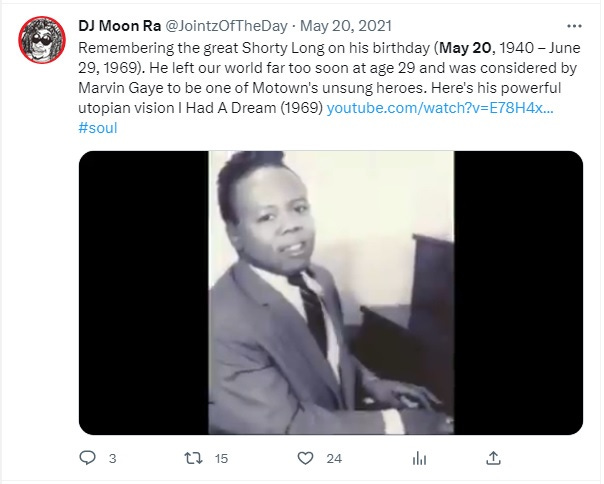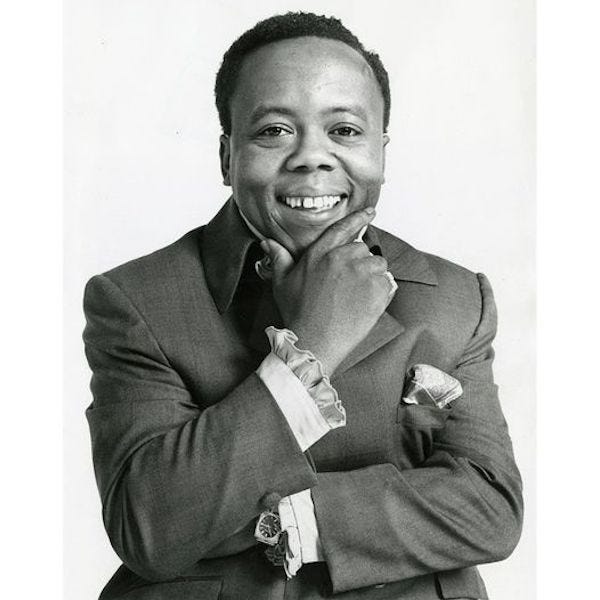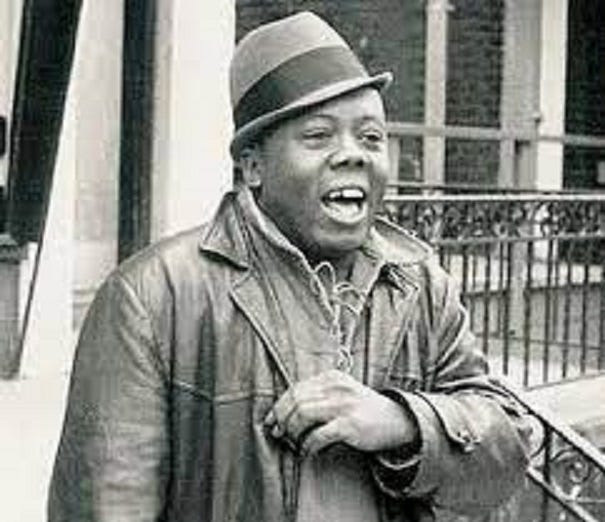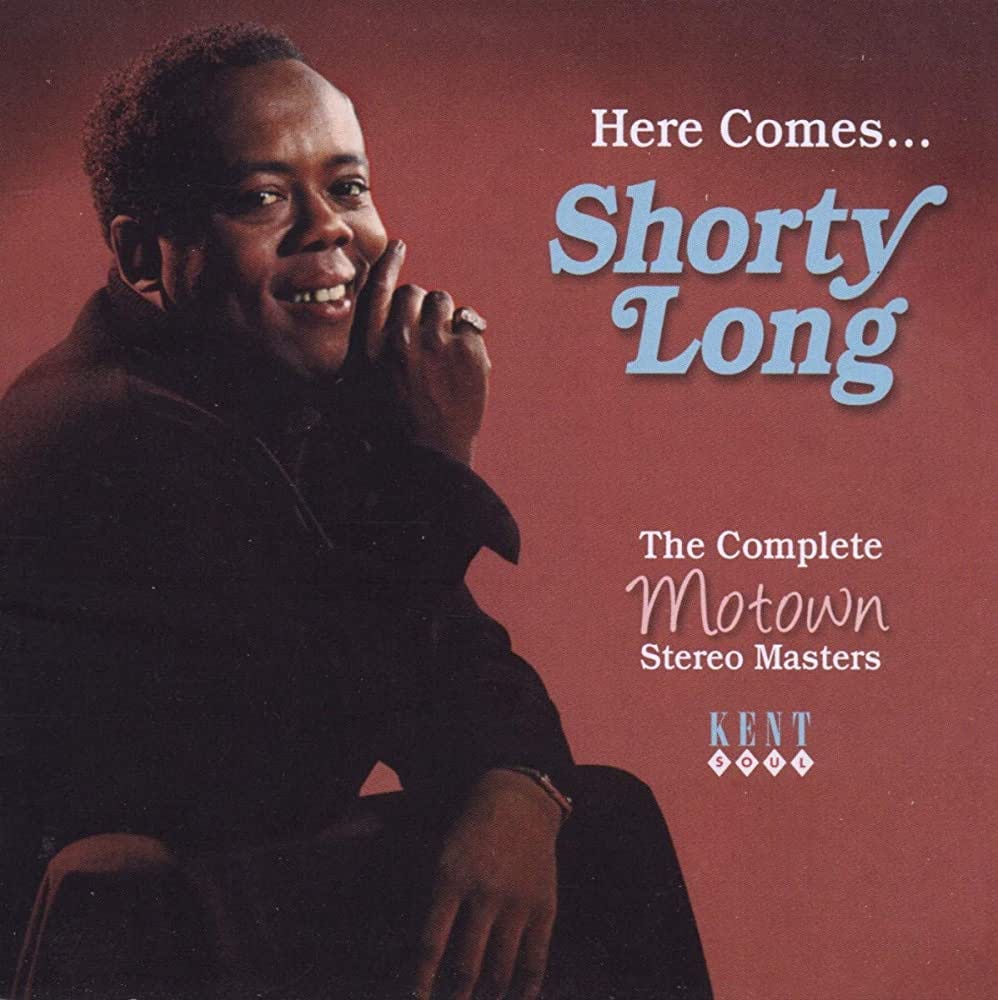Shorty Long (May 20, 1940 – June 29, 1969) – I Had A Dream (1969)
This powerful utopian vision was one of the last singles Long released before his death at age 29, co-written with Sylvia Moy who also co-wrote early Stevie Wonder classics.
Watch full video on Twitter.
View most updated version of this post on Substack.
“Shorty” Long was a singer/songwriter, musician and producer who worked with the Motown subsidiary Soul Records, and was considered to be one of Motown's unsung heroes by no less an authority than Marvin Gaye.
Frederick Earl "Shorty" Long was born in Birmingham, Alabama. He wanted to become a recording artist and moved to Detroit in 1959 at age 19. He first signed with the Tri-Phi label, owned by Harvey Fuqua and Berry Gordy’s sister Gwen, which was later sold to Berry.
His first Motown single was “Devil with the Blue Dress On” (1964), which he co-wrote with Motown songwriter and A&R department head William "Mickey" Stevenson, and was issued as the first release on Motown’s new Soul Records imprint. Berry Gordy established the sub-label to release material by hardcore soul and blues artists like Long. It did not chart, but two years later was covered by Mitch Ryder and the Detroit Wheels and went to #4 on the Billboard Hot 100, becoming their best-known song.
Long was a multi-instrumentalist, skilled on the piano, organ, drums, harmonica, and trumpet. He was tapped as the MC for many Motortown Revue performances and tours. Gordy allowed Long to produce several of his own recordings, the only artist besides Smokey Robinson who was given this freedom at Motown in the sixties.
His first real hit was the upbeat jam “Function at the Junction,” which reached #42 R&B in 1966 and is remembered by many as an old school roller skating classic. He co-wrote the track with Eddie Holland, and it was produced by Brian Holland and Lamont Dozier.
Finally in 1968, Long scored his first big hit with another upbeat jam that made folks laugh while they were shaking their tail feathers. “Here Comes The Judge” went to #4 R&B and #8 Pop, and became the title track to his LP released later that same year. To promote it, he toured with other Motown acts including The Contours, The Marvelettes, and The Spinners.
The next year in 1969, he released the single “Ain’t No Justice,” which was one of the tracks recorded for his album. Its B-side was a new song, “I Had A Dream,” which was unquestionably Long’s masterpiece. He produced the track himself and co-wrote it with Sylvia Moy, who was Motown’s first female songwriter/producer and co-wrote “Uptight (Everything's Alright)" and “My Cherie Amout” for Stevie Wonder.
Its powerful lyrics described the utopian vision which had visited Long one rainy night while he slept:
“I had a dream...of folks walking side by side, blessing peace inside...their arms were open wide...tears of joy they cried...'cuz all of God's children were free at last. I saw no such thing as hunger, and crutches were needed no longer. ‘Til I saw a face…and in that heavenly face, I saw everything…there was bonded here one race.”
“Ain’t No Justice,” the single’s A-side, was produced by Frank Wilson. It was a mostly instrumental jam, and could be seen as merely a follow up track to “Here Comes The Judge.” But its simple lyrics were also profoundly political (“Ain't no justice nowhere in the world today…ain’t no justice round here, baby!”) at a moment when MLK had been assassinated, Nixon was newly elected, and Hoover’s FBI was waging all-out war on the Black Panther Party and other radical New Left activists trying to bring about change.
Marvin Gaye, who was one of his Long’s friends, was quoted in David Ritz's biography Divided Soul: The Life & Times of Marvin Gaye as saying he “fought for guys like Shorty” while at Motown, once asking the Holland-Dozier-Holland team when they came to him with a song, “Why are you going to produce me? Why don't you produce Shorty Long?” He described Long as “this beautiful cat who had two hits, and then got ignored by Motown.”
Funk Brother keyboardist and bandleader Earl Van Dyke claimed Long would regularly come into the Hitsville U.S.A. studio and say, “Today we ain’t playing nuthin’ but funk, if you don’t feel funky, take a drink of this,” then reach into his jacket pocket to pull out a bottle.
Sadly, Shorty Long died in the summer of 1969 in a boating accident on the Detroit River. He was only 29 years old. Stevie Wonder played the harmonica at his funeral and placed it on Long’s casket to be buried with him.
Further info:
“'Shorty' Long, Pal, Drown; He's Buried in Alabama,” Jet, July 17, 1969
“We Remember...Motown’s Shorty Long,” by Judyth Watson-Remy, 50 Bold, May 2019
#soul #Motown #MarvinGaye #SylviaMoy #ShortyLong








